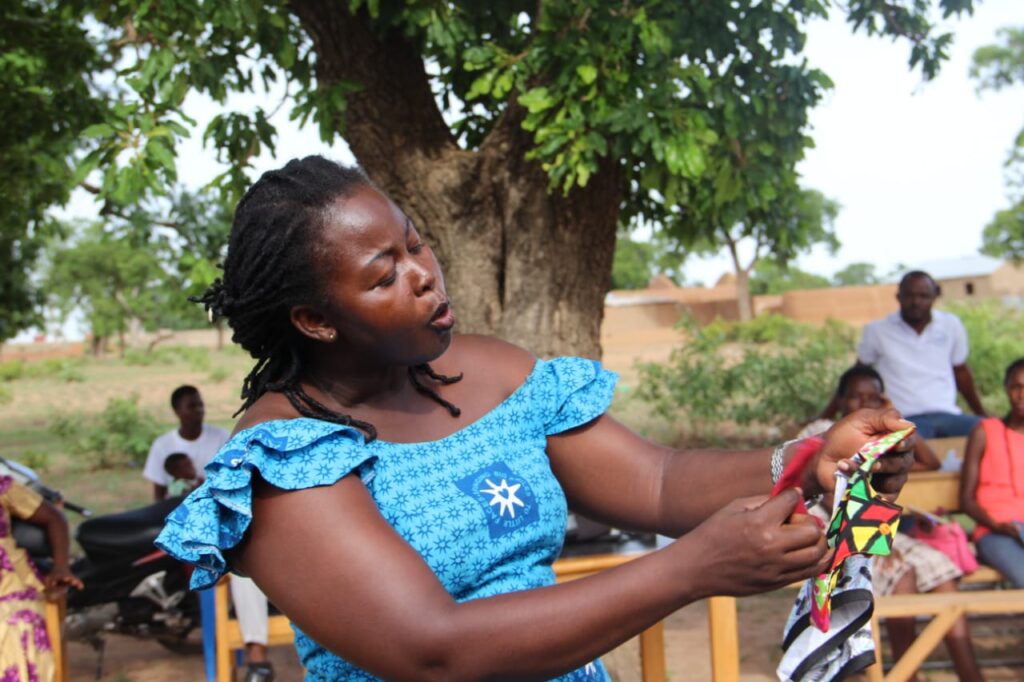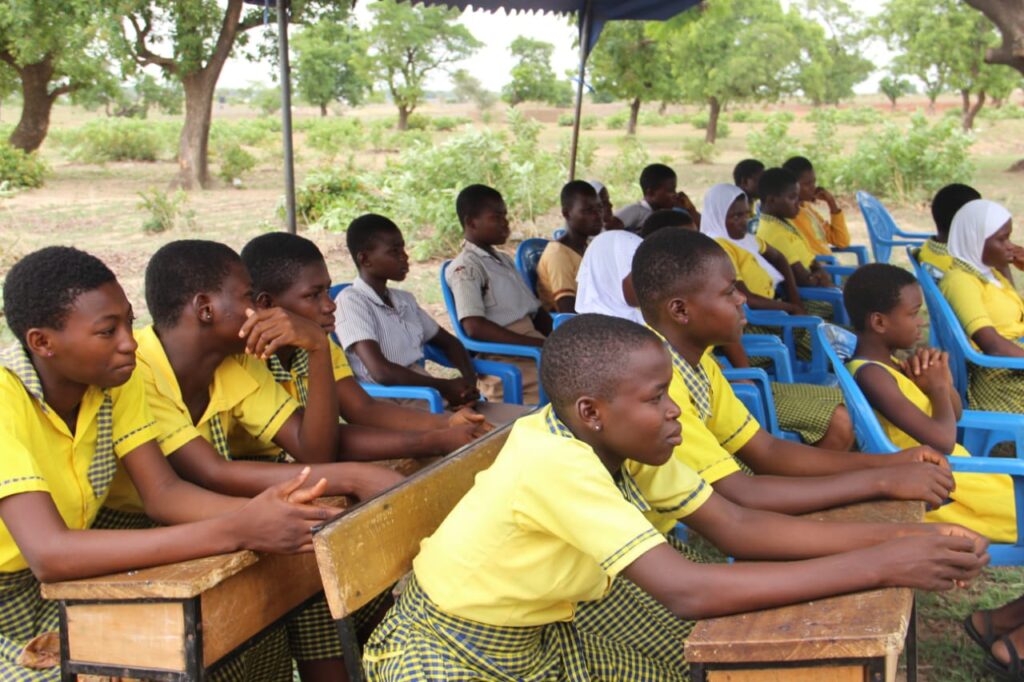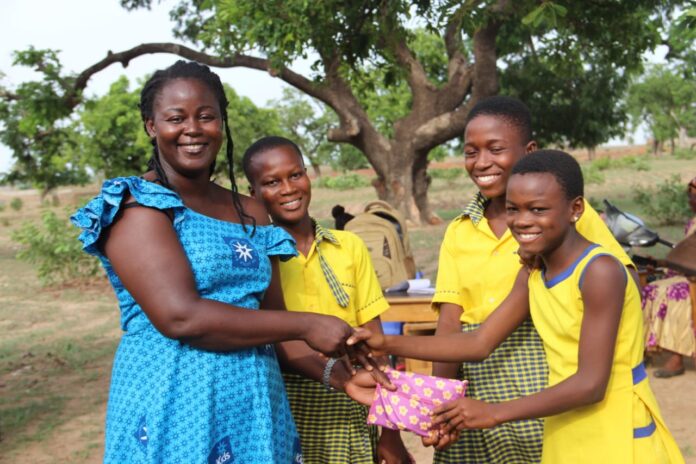Afrikids Ghana has targeted vulnerable girls in 60 schools in the Mamprugu Moagduri District of the North East Region and Binduri and Builsa South Districts all in the Upper East Region to donate reusable sanitary pads as part of efforts to improve menstrual hygiene.
The gesture which forms part of activities to mark this year’s menstrual hygiene day, which seeks to make menstruation a normal fact of life by 2030, saw Afrikids target 600 vulnerable girls in all the 60 schools to donate the pads to.
Access to improved menstrual hygiene has become difficult for many young girls considering the ballooning cost of pads in Ghana.
The high cost of menstrual hygiene products has prompted Afrikids Ghana to join calls for the scrapping of taxes on menstrual products. These taxes when scrapped, according to the organization will drastically reduce the cost and allow for many girls, especially in rural areas to afford menstrual hygiene products.
At the Binduri District, Afrikids Ghana held a sensitization session for learners of the Binduri Model Girls’ Junior High, which saw officials of the Ghana Health Service in the area engage the learners on menstrual hygiene and the need to ensure they deal with misconceptions and myths surrounding menstruation.
The Binduri District Manager, Afrikids Ghana, Cecilia Awiah, in an interview with Dreamz News moments after the sensitization, said the exercise is to help the girls understand that menstruation is normal.
She added that the essence of introducing reusable sanitary pads to vulnerable girls is to ensure that they have something dignifying during the menstrual circle since the disposable has become extremely expensive for many young girls.

“Today’s engagement is to drum home the message that menstruation is normal, for everybody to know that it is important to keep yourself clean, things you should do, and those that you should not use during menstruation. We also demonstrated how to use disposable and reusable sanitary pads.
The majority of the adolescents we met have not had the opportunity of seeing the reusable sanitary pads though they know of rags being used.
We are therefore supporting 200 vulnerable girls across 20 schools in the district and considering how expensive the pad has become, we think that the reusable pads will help these girls in the rural setting.” She emphasized.
Some of the girls took turns to share how the training period benefited them.
“My name is Akolbila Elizabeth and I have learned a lot from the sensitization I learned that if you are menstruating and you feel pain, you can boil water and massage your abdomen. I will advise young girls to bathe regularly and change their pads at least, twice or thrice.”
Another, Azure Mavis said the exercise was enlightening. “I learned a lot today. I never knew there was something apart from the disposable pads that we can use but today I saw a reusable sanitary pad and I now know how it can be used.” She added.

Public Health Nurse at the Binduri District, Angela Akudugu, said parents, women, girls, and boys should view menstruation as normal and not make a mockery of girls who unfortunately soil themselves.
She noted that parents need to show a special interest in the menstrual hygiene of girls.




